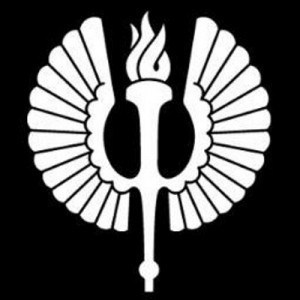Photos of university / #unibasel
The Bachelor of Science in Drug Sciences at the University of Basel offers a comprehensive and interdisciplinary education designed to prepare students for a dynamic and evolving field. This program provides in-depth knowledge of the molecular, cellular, and systemic mechanisms underlying the effects of drugs, with an emphasis on both the therapeutic potential and potential risks associated with pharmacological substances. Students will explore various disciplines, including chemistry, biology, pharmacology, neuroscience, and medicine, gaining a holistic understanding of how drugs are developed, tested, and used in clinical settings. The curriculum combines theoretical coursework with practical laboratory training, enabling students to acquire essential skills in experimental design, data analysis, and scientific communication. Throughout the program, emphasis is placed on critical thinking, problem-solving, and ethical considerations related to drug development and usage. Candidates will also have opportunities to engage in research projects, internships, and collaborations with industry partners, fostering hands-on experience and networking within the biomedical community. Graduates of the Drug Sciences program will be well-equipped to pursue careers in pharmaceutical research and development, regulatory agencies, clinical trials, and healthcare consultancy, or to continue with advanced studies in related fields. The program is characterized by its strong focus on innovation, scientific integrity, and social responsibility, ensuring that students are prepared to contribute meaningfully to advancements in medicine and public health. With state-of-the-art laboratories, expert faculty members, and a vibrant academic environment, the University of Basel provides an excellent platform for aspiring scientists to thrive and make impactful contributions to the field of drug sciences.
The Master of Science degree requires a successfully completed Bachelor’s program. The MSc Drug Sciences awards 120 ECTS credits in total. The course comprises lectures, seminars, a practical training, as well as a ten months supervised Master’s thesis work. Elective courses complement the program in order to promote individual skills. One ECTS credit point roughly equals 30 hours of studying.
Combination of subjects
The degree programs at the Faculty of Science are generally mono-courses with the possible addition of an in-depth subject and an elective subject. The Master’s degree program Drug Sciences does include an elective subject; however, no other subjects are required.
Courses
- Introduction and Basis of Human Diseases
- General Skills and Experimental Tools
- Target Identification/Validation to Discovery of Modulators
- Translating Pharmacology and Drug Safety to Humans
- Clinical Drug Development: the Basis for Market Approval
- Practical Training
- Masterarbeit (10 Monate)
- Masterprüfung
- Wahlbereich
A Bachelor of Science (BSc) in Pharmaceutical Sciences from the University of Basel allows for direct admission to the Master’s degree program Drug Sciences. Other Swiss university degrees have to be approved by the respective teaching committee. Foreign degrees have to be approved by the examination commission of the Faculty of Science.
The financing of the Drug Sciences program at the University of Basel is primarily based on multiple funding sources that support the students throughout their studies. The program is subsidized by the Swiss government as part of the country's commitment to advancing higher education and research. Students enrolled in the program may benefit from various financial aid options, including government grants, scholarships, and tuition fee waivers, depending on their academic performance and financial need. The university also offers specific scholarships aimed at students pursuing degrees in health sciences and related disciplines, which may include merit-based awards or need-based support. Additionally, students can explore external funding opportunities such as national research grants, private foundations, and European Union programs that support scientific research and education in the field of drug sciences. The tuition fees for the program are structured to be affordable for Swiss residents, with reduced rates available for students from neighboring countries. International students may incur higher tuition costs, but they also have access to university scholarships and external funding sources to offset these expenses. The university provides detailed guidance and support to students seeking financial assistance, including application procedures for scholarships, advice on external funding opportunities, and information on repayment options if applicable. The university’s commitment to making education accessible ensures that financial considerations do not hinder qualified students from enrolling in the program. Moreover, students are encouraged to engage with the university’s career services and research departments to identify additional stipends and assistantship opportunities linked to ongoing projects. Overall, the financing ecosystem surrounding the Drug Sciences program is designed to promote diversity, facilitate access to education, and foster a vibrant research community dedicated to advancing knowledge in drug development, pharmacology, and related disciplines.
The University of Basel currently collects CHF 850 in tuition fees per semester, along with CHF 10 for the student body.
Please note that there are also costs for books and, of course, your personal living expenses. The following list provides a general indication of monthly living expenses if you are not living at home with your family.
Rent (room, shared living space, student dormitory)
Minimum: CHF 400; Average: CHF 600
Food, household, clothing
Minimum: CHF 450; Average: CHF 600
Insurance/healthcare
Minimum: CHF 200; Average: CHF 300
Transportation
Minimum: CHF 60; Average: CHF 90
Learning materials
Minimum: CHF 100; Average: CHF 150
Tuition Fees
CHF 140
Recreation/culture
Minimum: CHF 150; Average: CHF 220
Total
Minimum: CHF 1500; Average: CHF 2100






